Media | Articles
Did Facebook Kill The Car Forum?
For automotive enthusiasts who came up in the early days of the Internet, the acronym BBS holds significance. The prestigious wheel company remains a known quantity, but this also stands for “bulletin board system.” Consider the BBS as a kind of early social media, connecting people by means of modems coupled to telephone lines, but it became all things to all people when the World Wide Web and broadband connections were popularized in the 1990s. With the technical barriers to entry for hosting a website suddenly lowered, the internet forum became a tool for hobbyists of all shapes, sizes, and levels of computer literacy.
No longer just for the computer-obsessed, the graphically intensive “Internet Forum” piggybacked to any website; in the car enthusiast world, it usually did so with a domain name that included a vehicle’s name or an inside-baseball reference. (Corral.net, for instance, served Mustang people.) Car forums became the new lifeblood of the automotive hobby; wisdom once limited to books or conversations with other people could suddenly flow across the information superhighway.
Internet forums kept people invested and coming back with everything from technical questions to enlightening or enjoyable “off topic” conversations in a dedicated sub-forum, often referred to as a lounge. Webmasters were the ringleaders of these worlds. They deputized members into moderators, who subsequently kept conversations on track while weeding out the riff-raff. Text conversation evolved with internet technology, becoming multi-media affairs; hyperlinks, photos, and eventually emojis and videos were embedded into forum posts to improve the user experience. As the forum’s blueprint matured, new generations of users mixed in with the old. And forums weren’t just for cars, as everything from lawnmowers to Miami Vice fan forums took advantage of the power of connection between fellow enthusiasts.
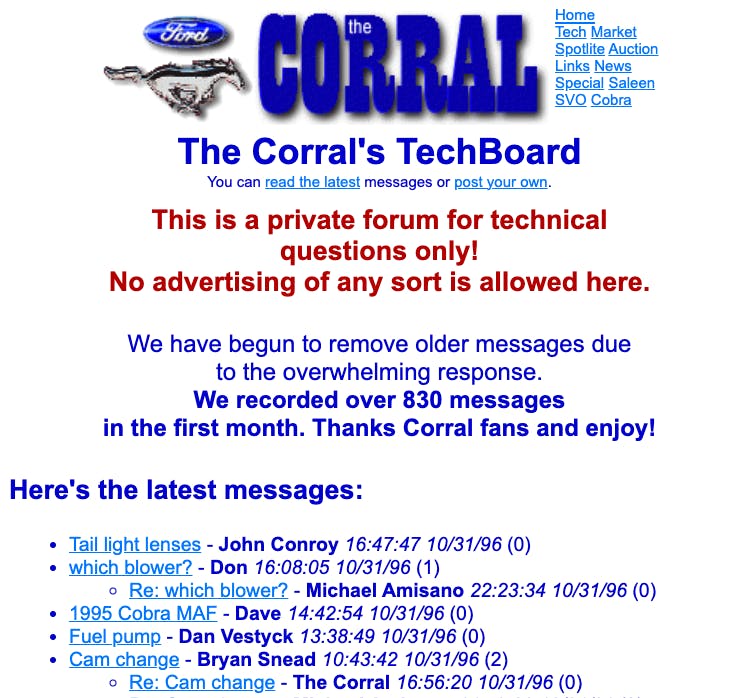

Those halcyon days are fading fast. Active forums are harder to find these days. The reasons for their decline are multifaceted, but one is large and undeniable: Meta’s Facebook and its collaborative channels known as “Facebook Groups.” These open spaces are created by Facebook users and accessible only by other people with Facebook accounts, effectively eliminating the traditional webmaster role. A group may have a moderator, but this position’s powers are limited because Facebook ultimately still operates the platform. It’s a walled garden to which only Zuckerberg has the keys.
Across the board, Facebook’s impact on traditional automotive forums has been significant. We interviewed two automotive forum owners that have a challenging relationship with Facebook groups, a creator of one such group, and an end user with a unique story, to learn more about the impact of Facebook on forums and on automotive knowledge in general.
Marketplace
Buy and sell classics with confidence
The Car Forum’s Web 2.0 Come-Up
Before automotive forums were standalone websites with unique domain names, they were “sub-forums” under the larger umbrella of well-known, general content websites. My first experience with such a platform was 26 years ago on the Excite web portal. Back in 1998-99, Excite admins told its users that activity in their automotive forums made it one of the fastest-growing communities in their portfolio. The automotive community’s passion clearly fueled a following, ensuring that vehicle specific forums would blossom in the next millennium.


But this forum genre fractured as it grew. Unique websites for individual makes, models, and brands were easy to find after the advent of Google: Another resource that rose to prominence at the same time. These pages were open to owners, curious fans, and even factory employees that shared personal, valuable insights. My years of experience with one particular forum consumed countless hours of my time and connected me with fascinating, like-minded people. Its supremely talented webmaster even helped me on my journey into automotive journalism.
The website was Lincolnsonline.com. “DaKat,” or Kathleen in the real world, was its founder, and she became one of my closest friends. (Her last name is being withheld for privacy.) I was impressed by Kathleen’s ability to create and manage this forum with basically no help; she even created the website’s graphics from scratch and updated them regularly. This could be a rewarding job, but it was at times brutal. Factions formed across multiple websites, and I realized she was being bullied by a handful of others within our small online community who wanted her to fail.

After I was banned from another similar forum (a story for another time, maybe), I threw my hat into the Lincolnsonline.com ring. I quickly became a Moderator, then a Super Moderator (Moderating all sub-forums, not just one), as our thriving luxury car community expanded. Posting on the forum gave me confidence and improved my writing. Users learned how to fix seemingly impossible things (think faulty air suspensions) or popularized upgrades that later became regular fare (the Mustang high output swap on 5.0-liter Lincoln Town Cars serves as one example). We shared and celebrated the win of a lucky parts find from a local junkyard, or offered tips on how to get a good deal on New-Old-Stock stuff from online retailers. Provided the poster wasn’t asking the same damn question already answered multiple times that month, people were willing to help.
I met some great people, some of whom became family of sorts. Some of the moderators even met in real life for a barbecue at Kathleen’s house back in 2010, coming from as far as the U.K. In retrospect, that afternoon BBQ might have been the peak of our Lincoln forum’s success—the culmination of an era during which sites like LincolnsOnline.com didn’t have to worry about a siege from big-tech competition.
Like all the best things, it didn’t last.
Social Networks Gain Ground
Diving into the brave new world of Web 2.0 was an interactive and collaborative thrill back in the early days of Facebook and Twitter. Instead of interacting with a series of glorified view-only folders in a forum, social media let us interact with friends and see the broader picture of their life.
The allure of these new platforms was potent. There were just too many photos to see on Facebook, budding video personalities on YouTube, and clever quips on Twitter. Heck, even the Lincoln MKX had its own Facebook profile (circa 2007) and I was cool enough to be in its six-pack of “Pinned Friends”—an award I earned for posting a pic of a ’63 Continental grille on its profile page.
Before the days of rampant spammers, scammers, corrosive political speech, and the infamous Cambridge Analytica data scandal, Facebook was a fun place to hang out. But at some point it stopped being a place of collegial conversations with my friends in a curated setting, as witnessed by their explosive growth: Facebook’s number of monthly users exploded from 431 million in the beginning of 2010 to over three billion by the end of 2023.
I was hooked, but Kathleen preferred a root canal to joining Facebook. Along with several other users, I spent fewer and fewer minutes on LincolnsOnline.com, instead posting on each other’s Facebook profile pages. In 2010 my full-time career transitioned from IT project management to the burgeoning world of social media marketing, which consequently soured me on the automotive forum’s long-term prospects. I even began to care about pointless metrics like my Klout score to see how I ranked with other social media professionals in my city. For me it was a simpler and stupider time to enjoy blissful ignorance.

With so much of life happening online, being a Super Moderator of a small-time Lincoln forum didn’t have the cachet and personal benefit it did a decade prior. While I never really left LincolnsOnline.com, Kathleen called me one day to candidly discuss my lack of activity on the forum. She suggested our mutual friend Dereck, from the U.K., take over as the forum’s Super Moderator. I apologized and agreed with her choice. It was tough to say goodbye, but there was only so much time I could spend at my computer, and my full-time social media gig was both professionally and personally rewarding.
I’d visit LincolnsOnline.com in the mid-2010s to chime in on occasion, or dig through the archives like a researcher in the hallowed halls of a library, but I saw that site traffic was down and new members were joining at the same rate as they did in the mid-2000s. We used to get 3-5 new members every week and 10-20 new threads daily. Once social media hit its stride in the mid-2010s, weeks would go by with no new members, and days passed with no new threads.
But a Lincoln forum has an obviously narrow fanbase compared to other vehicles, and on its own might not be indicative of the entire picture. I sought input from a site with broader reach. I spoke with Everett Barnes from TheSamba.com—founded in 1997 as a place for Everett to showcase his collection of Volkswagen memorabilia, this website blossomed into a large online community of air-cooled Volkswagen enthusiasts. Even today, TheSamba.com boasts over 50,000 unique visitors per day, and its forum is filled with over seven million posts.


Everett’s post-Facebook experiences parallel that of my time at LincolnsOnline.com, if to a lesser degree of magnitude. (This might be due to the fact that air-cooled Volkswagens are far more popular than Lincolns.) TheSamba.com was affected by Facebook, but Everett notes that “traffic has remained fairly stable for many years, when it had been slowly increasing in the past.” After the advent of Facebook Groups, he notes TheSamba.com has a smaller number of active users answering threads, but very few threads remain unanswered.
Everett has seen a decline in membership, though he feels his forum might have reached “the limit on interested people in the vintage VW market.” He also noted that his website’s demographic skews to older folks that are “either selling their vehicles or passing away due to age or health issues.”
Facebook Flexes Its Muscle
The decline of forums was exacerbated by Facebook’s move to introduce Groups to its 608 million users in October 2010. Anyone with a Facebook account could join a group about any topic, or make one if the subject material wasn’t yet covered. Groups were similar to forums—members could make posts, converse with others, and engage in Facebook’s signature likes, shares, and multimedia posting abilities. Compared to forums, barriers to entry were eliminated: no need to have a webmaster, no hosting fees, and no complicated software licenses.
It wasn’t a repository of information like a forum, but it was optimized for use on mobile devices. For car forum users, the ability to take a video of your car problem, upload it effortlessly, and get near-instant feedback from other users was seriously powerful.

As the social media giant’s user base kept growing, it inevitably sucked in more traditional forum users and gobbled up their free time in the process. While I avoided directly interacting in the Facebook groups that gutted forums like Lincolnsonline.com so thoroughly, I’d join and occasionally lurk to see what people were talking about.
What I witnessed there was beyond tragic: a new generation of Lincoln enthusiasts were pulling these cars out of fields, inheriting them from relatives, and buying them on the open market only to ask the same questions “we” on the forums answered over 20 years ago. All the information was already in the forums, fact-checked by trusted members who knew their stuff (a concept that’s proven more challenging to execute in Groups), and easily searchable.
While frustrating, the demise of car forums wasn’t all Facebook’s fault. In June 2017, photo/video hosting house Photobucket stopped offering a free service to share photos and videos. In what seemed like the flip of a switch, every valuable photo in a how-to thread in car forums disappeared. In their place was a depressing black rectangle. The only way to bring them back: the photo owner had to pay $399 to embed images on websites like automotive forums.
Photobucket apparently regretted the move and tried to claw back some credibility in 2019, with a variety of other less aggressive measures, but the damage was done.

While the decline of automotive forums was already in full effect, the Photobucket debacle arguably accelerated the dominance of Facebook Groups, where images could still be uploaded and viewed for free.
Groups wasn’t perfect, of course. Facebook fell short in a few key areas, mostly related to how users could navigate and organize the community. An advantage of the forum system was its simple yet robust architecture and legible hierarchy, under which experienced users knew exactly how to find what they were looking for. A reliable search feature, for instance, could whittle down a large database to specific sub-forums (Powertrain, Electrical, Body, etc.). Individual users could easily find what they were looking for, which meant users were more likely to post useful answers to fresh questions rather than endlessly answer the same basic ones from newcomers.
While Facebook Groups eventually added a search feature, it remains rudimentary relative to the level of granularity found on forums. Absentee Facebook moderators that don’t delete spam postings further muddy the waters. While a copyright violation on sketchy vendors selling T-shirts themed to your vehicle might not affect everyone, the recent trend of car part scams from fake Facebook accounts has serious consequences for Group members.

These fake accounts are usually based outside of North America, often steal images of relevant cars, and offer parts from said cars to entice and swindle trusting Group members out of their money. Sometimes they will even close their posts to other’s comments, instead asking others to send them a private message. This clever move ensures savvy Facebook users cannot warn others of a scam post.
An unmoderated Facebook Group allows this gaming of Facebook’s system, and it’s a feature baked into platform that would be wholly incomprehensible on a traditional forum. Surprisingly, another baked-in feature is theft of intellectual property from traditional car forums. Everett Barnes from TheSamba.com notes that he only made one Facebook page for his website, but other groups are using his name without his permission. Places like The Samba VW Show/Buy/Sell/Trade Faceboook Group eventually capitulated, adding a disclaimer so their 117,800 members understand they are not associated with TheSamba.com.
From Forum Moderation to Facebook Group Administration

Individuals who have managed both forums and Facebook groups will see parallels between both platforms. I discovered this when creating a handful of groups that I made only to keep myself entertained during the pandemic. But Bryan Salgado has been living in the world of Facebook Group administration since 2015, the year he created BMW Z3 and Z4 maintenance, repairs, and upgrades for the BMW community on Facebook.
Bryan started the BMW maintenance page because none of this information existed in one place online when he was learning how to fix his own car. But now this information is “consolidated and it can save people a lot of time.”
“Facebook is a great medium because it’s immediate, where it functions like a chat room,” said Salgado. “The problem is when people get in there who don’t know what they’re talking about, and the people who really do have to correct them.”
Salgado went further, insisting that “Policing the nonsense is tough: you just have to be a dick sometimes. And I’m pretty good at that.” He also screens everyone that wants to be in the group. I have personally seen the benefit of such screening, as I’ve asked a relatively obscure question about the vehicle to ensure passionate owners make it into the group. This keeps scammers out and dispassionate intenders away from the community. For Salgado, this is necessary to keep the page clean, as he “does not like wading through shit.”
He admits that some people appreciate his efforts, while others do not. He will help people diagnose their problems “free of charge, and I don’t ask for anything in return for the information cause I don’t see it as work.” As his group gains members and traffic, Salgado finds it harder to stay on top of the activity. But he knows his Facebook Group has saved people thousands of dollars and “it’s nice when they appreciate that.”
He also noted that “once you (personally) establish that you’re helpful, people just message you directly. I’m doing video calls with people all the time.” I know that feeling, as I’ve helped a handful of people via private messaging, and even sold unobtainum trim to a fellow owner in Israel. It’s a great feeling for me, and more than makes up for the effort of keeping a Facebook Group tidy and safe for everyone to use.
The Ongoing Aftermath

When Groups began to take over, the big question was whether Facebook users would ever actually spend time away from their phones to research their questions on a web forum, like Lincolnsonline.com, where answers can be found without the need to post. I had the foresight to ask that very question back in 2010, and members of LincolnsOnline.com were split 50/50 on having a Facebook presence for the forum. One member suggested that “Like anything, there will be some drawbacks, but, I think it’s a fairly good idea. Plus, more new faces.” But another suggested we “don’t need to expose ourselves via that data mining operation.”
In the end we did nothing on Facebook, even though I offered to do this for Kathleen. I wish I could remember the conversation after all these years, but she clearly had no interest in giving Facebook the privilege of using her “brand” to help them grow.
Between Kathleen’s assertiveness and the 50/50 split in member’s opinions, the competition from Facebook Groups found the forum’s soft spot in which to attack. We were up against a Goliath, and new fans of Lincoln automobiles got their information without even considering LincolnsOnline.com. Social media companies spend millions upon millions of dollars to ensure users never need to leave their app. (Our repeated requests for comment from Facebook were met with silence, an outcome that we more or less expected.)
My last chat with Kathleen was during the pandemic. Since then I’d heard about her declining health from a mutual friend. When she passed away in March 2023, I was reminded of the best days of our collaboration. Facebook ate up a lot more than people’s time, as it nearly destroyed our friendship.
Kathleen’s commitment to the forum demonstrated how 30 years of dedication to something can reap rewards: Her online community of vintage Lincoln lovers claimed a user base of more than 26,000 people. She was one helluva woman, overcoming adversity in both real and virtual spaces, keeping her soul intact no matter the consequences. A final comment in Kathleen’s will said it all: “I would hope that [LincolnsOnline.com’s new owner] will keep the spirit of the forum the same and not sell it off—and definitely not overrun it with ads or sell it to an advertising/marketing company.”
She was indeed adamant about keeping her forum in an individual’s hands, as one (of many) such “advertising/marketing companies,” named VerticalScope, previously emailed her to gauge interest in selling LincolnsOnline.com. VerticalScope is known as an aggregator of online forums. Kathleen had concerns, expressed both publicly and to me personally, that her passion for the community couldn’t be matched by any corporate entity.


Recalling that moment inspired me to reach out to VerticalScope, specifically to Colum Wood, their Vice President of Content. His years of experience in automotive journalism as a writer and editor give him a unique perspective on how social media changed the way we interact with automobiles and car culture. Luckily, he did not shy away from my questions:
“Automotive forums are a repository of deep knowledge that you just can’t find anywhere else. But more than just historical, they are an evolving community where you can get real answers. I think Facebook groups serve a purpose, but they often tend to be more superficial. We operate Facebook groups for some of our forums and it’s easy to see the difference. Signups are far higher, but post volume and engagement is generally lower. It’s easy to join a Facebook group. But it’s so easy that many people who join have no serious intention behind it. Compare that to a forum and people make a conscious decision to go out of their way and get involved.
One way it was described to me (by one of our forum moderators) is that Facebook groups are like Groundhog Day. Every day it’s the same two or three questions by new members. Forums allow for this service as well, but they also provide niche areas where deep technical expertise can be shared.”
Wood’s forum journey started 25 years ago when he joined a site hoping to learn how to lower a vehicle’s suspension. “It was like a little secret society made up half of die-hard enthusiasts and the other half of trolls,” he said. Automotive forums were how he “got into cars, the auto industry, and automotive journalism.”
Forums, Wood noted, have faced continual challenges over the last decade as social media keeps evolving. Longtime automotive enthusiasts know the mercurial nature of Google search results when seeking technical help for automotive questions, and artificial intelligence (AI) could really shake things up. But Wood notes that Google is now a powerful ally of the forum, as the search engine giant has prioritized “real user-generated experiences” in its organic search results over “AI content farms and publishers churning out product reviews based off of Amazon specs.”
Wood encourages everyone to seek online forums for knowledge and “for the chance to be a part of a unique community built around helping others and sharing a common passion.”

A downside of the original forum architecture was how the loss of leadership could put the community in jeopardy. Losing Kathleen back in 2023 was difficult for many LincolnsOnline.com users, but it hit hardest for Dereck Cook. He is the guy that flew in from the U.K. for Kathleen’s BBQ luncheon, and became the man tasked with keeping Lincolnsonline.com afloat after her passing. Cook openly credits the webmaster of his own business, an MOT Centre in Somerset, UK, for saving the forum by adding it to his virtual server, installing vBulletin software, and accessing a back door to unlock 25 years of valuable forum data.
Cook initially considered LincolnsOnline.com as “just another website/forum on the internet amongst a million other websites with a few users,” he ended up being drawn into this forum’s magic. “For over 20 years Kathleen persisted with it. Now she is gone and has left it in my care, [so] I feel obligated to do all in my power to keep the site alive in her honor.”
I asked Cook about his relationship with social media platforms: “I am not Facebooked, Instagrammed, Twittered, Whatsapped or any other social media shit you can think of,” he responded. “I just don’t get the whole concept at all.” Cook had never heard of Facebook Groups, but he understands that a decline in forum usage is because of a “younger generation’s apparent lack of interest in anything that is not Facebook, iPhone, app-based, or Xbox.”
LincolnsOnline.com has been on the decline over the last ten years, with about a dozen regular users, several “older members that happen by once in a while” and “2-3 new members every week that either never ask a question or ask a couple of questions then disappear.” He observed that Kathleen was often quite worried by this decline. Aside from all of the technological hurdles and competition, the diminishing pool of diehard Lincoln enthusiasts is not conducive to growth.
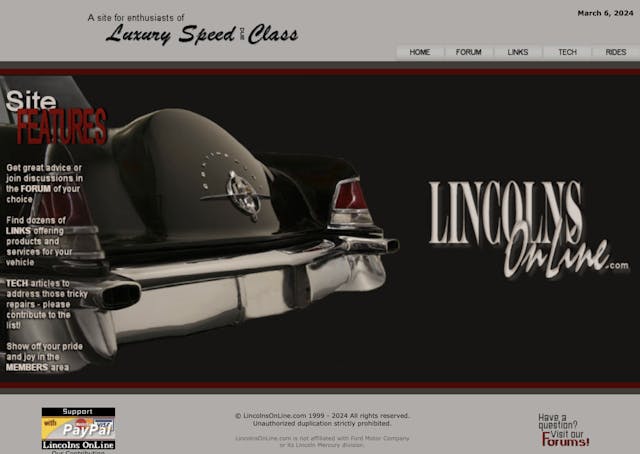
Cook indicates that Lincolnsonline.com “will bumble along for as long as I am here and there is an internet, remaining as a library for anyone that may need information in the future.”
Great as all this sounds, it’s an edge case. Catering to a brand with a shrinking audience isn’t a great business model. Other forums are meanwhile growing and occasionally monetizing, especially for approachable vehicles like the new Ford Maverick and Tesla Model 3.
Best of Both Worlds?

VW Vortex (another VerticalScope property) is probably the best example of a successful modern forum. It has been around since 2001 and currently has 84.5 million posts with 1.5 million members. The site’s “car lounge” has daily activity that puts some high-traffic blogs to shame, proving that forums can survive and thrive in 2024. VW Vortex has become a destination for enthusiasts of all stripes, and it regularly funnels traffic from Facebook groups to its own valuable library of automotive content, resources, and people.

One person fitting this mould is Jackie, a 24-year old VW enthusiast living in Texas. As a kid, she preferred playing with Hot Wheels over Barbie dolls. She learned how an engine works by building a scale model of a Hemi V-8. At 18 she bought her first car, an Audi A3, and did her own maintenance through college.
Jackie wanted even more from her automotive experience. She bought a project GTI Mark II—the perfect entry point to satisfy her interest in 1980s-era motoring and her desire to work on small projects. For her, the GTI fulfilled a dream of enjoying the “odd complexity of two cylinder banks 15 degrees apart joined by a single head.” In 2019, one of Jackie’s friends suggested she do the (now-completed) VR6 engine swap in her GTI, which sent her searching on a VW-oriented Facebook group for more information. At the time it seemed to Jackie that forums “were unfortunately already obsolete,” but her research nevertheless brought her to VW Vortex. “Facebook groups led me to the forums,” she said.
Jackie’s original questions in the Facebook group were along the lines of “What is a good budget for a MK2 VR6 swap?” and “How much fabrication is involved?” She was surprised to get hundreds of people offering her advice and hyperlinks—many to VW forums. Someone sent her a VW Vortex forum post with a complete parts list for the VR6 project. Jackie wisely credits her successful engine swap to a mix of forums, YouTube videos, and advice from others in Facebook groups.
“The amount of knowledge I gain from other like-minded people who have already gone through the issues that I was experiencing saved me a lot of time and gave me a ton of motivation. If there was not already an existing answer to the question I had on an old Vortex or clubGTI forum, I could get an answer from a Facebook group member within minutes. I stayed in touch with a few of these members that have helped me with this project and that I call my friends today. It is safe to say I would not have completed this project without forums and advice from Facebook groups.”
– Jackie @dubchick_ on Instagram
In our conversation, Jackie did bring up another positive attribute of Facebook groups: region-specific pages for VW owners. For her, these smaller networks help build trust and a greater sense of close-by community. Regardless of how she found the necessary information, the proof of her success is that her VR6-swapped GTI runs sweetly and reliably.
These days, Jackie uses Facebook groups to connect with other VW enthusiasts and to buy/sell parts. Forums, too, remain a useful reference tool. Jackie is now a freshly minted mechanical engineer, which means she reads forum build threads from start to finish with a particular kind of fluency. “How To” threads make her GTI better, and specific Q&A threads are useful for seeing different ways to solve problems.
Change is the Only Constant
Jackie’s story helps me put the internet forum’s evolving utility into perspective. The truth is that there is valuable knowledge across a variety of online media, be it from videos on YouTube, conversations on Facebook groups, or the tranquil virtual library of automotive forums. Newer media isn’t worse than old, it’s just different. Case in point: Everett from TheSamba.com knows that many of his members “prefer the Forum format for better and more complete answers” and plenty of air-cooled VW enthusiasts still swear by printed books like How to Keep Your Volkswagen Alive. There’s no one killer app for all users, it seems.


Consider the contrast between YouTuber Davie504 and session musician Victor Wooten. Both artists inspire up-and-coming bass players around the world, and Wooten has five Grammys to show for it versus Davie504‘s 13.4 million subscribers. The latter’s success is the result of promoting his craft in a manner congruent with YouTube’s fine-tuned algorithm, whereas Wooten’s efforts have focused on the traditional studio model. The end result for the bass community is a stronger, wider variety of inspiration that yields different kinds of music. Similar skills, separate applications, different sounds.
Did Facebook really kill the car forum? That likely depends on your vantage point. Perhaps early-Internet automotive enthusiasts, like yours truly, cling to what worked for us back in the day. The digital landscape is ever-changing; certainly the availability of automotive knowledge would have been constrained had it never left the bulletin board system.
If there’s one takeaway from these 20+ years of “car talk on the internet” it’s that we need to build and support the communities we want to see, on the platforms we are most comfortable with. The platforms may or may not survive, but the communities we build will adapt and keep car culture alive for future generations.
***
Check out the Hagerty Media homepage so you don’t miss a single story, or better yet, bookmark it. To get our best stories delivered right to your inbox, subscribe to our newsletters.

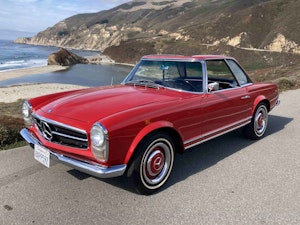
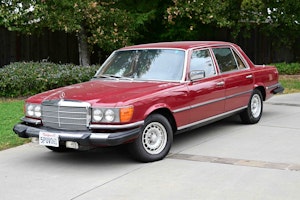
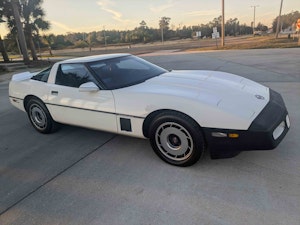
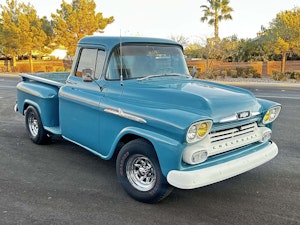
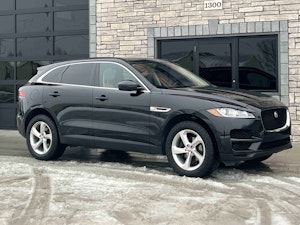
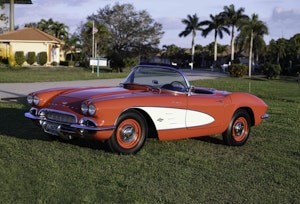
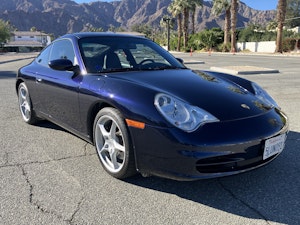
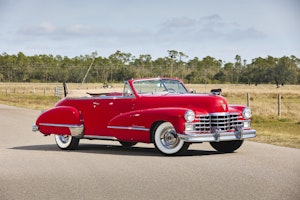























I joined torinocobra.com/forum about 35 years ago. I still check it every day, but posting has really slowed to a crawl in the past year, and there has been very few new members, partially due to the mods rarely being on it themselves anymore. Being basically an orphan car in the first place, finding parts and getting advice is a task . There are several Facebook groups dedicated to the brand, and while I was a member of them, I did connect with some guys that were also forum members , but had made the switch. I have since left the Facebook groups as I sold my 69 GT convertible and now have a 94 F150 XL shortbed. I do belong to the 92-96 F150 group and the Canadian OBS one as well. fordtruckenthusuasts.com is a very active forum and has a huge amount of members and archives.
Specific Car-forums are extremely helpful for all historic vehicle owners, given their are accessible via a simple Internet-login and moderated by competent people to keep their content ” up to date” and free of all small talk.
I have joined and left too many FB Groups to count. Very few are helpful or are outright scams to sell the “moderators” crap. The first time such moderator tags everyone with @everyone, I’m gone. Too many groups are “open” and have no moderation which leave them wide open to scammers and many ghost members. I’m surprised FB doesn’t slap me down as I am always reporting bad actors. Only FB Marketplace is marginally useful.
That was a bit LONG, but made some good points. I’ve seen forums come and go.
FIRST – A good forum needs a good moderator and manager. Differing opinions can turn into the nasty trading of insults that drive folks off. Promoting “good manners” and banning jerks makes for a much better environment. Tolerance of the inexperienced is required, we were ALL inexperienced at one time.
SECOND – The joke on one forum I use is “If you want to learn how to do it wrong – go on Facebook!” Just amazing the amount of incorrect information presented as FACT by attention seeking folks.
THIRD – Like car clubs, forums seem to survive or perish based on the efforts of one or few people. When things are good the information tends to be accurate and folks disagree politely with their point of view, like going racing vs. daily driving. When things go bad the the credible folks just disappear.
FORTH – The car hobby is suppose to be FUN. When it isn’t, then folks don’t participate. Best to learn (as I did in my profession), DO NOT FALL IN LOVE WITH YOUR OWN IDEA/OPINION. LISTEN TO OTHERS.
I’ve been active on forums since around 2000, before I was driving, some forums for over 15 years now, and have seen many slowly trickle down to their deaths. I was pretty scarce on FB for a few years, however it became a necessary evil when the forums and classifieds were dead on the particular vehicle I was looking for. This led me back into FB for both Groups and Marketplace. Full of inexperience, repeated questions and tons of misinformation, it hardly ranks close to forums.
Another thing FB seems to have killed is Craigslist. FB’s (and offerup) ease of use and visual interface makes it much more suited to the masses, and has seemingly pushed CL out of the ring for the most part.
Three cheers for Kathleen and three farts for Zuckerberg
a lot of people hate fartbook and refuse to use it. I’m probably more old school and prefer traditional forums – both for their deep knowledge base and way less spam.
one thing i have found an issue with forums is when searching for related posts before posting ‘the same thing again’. Often i find the way people word things doesn’t allow a useful post to come up and it ends up being easier to make a new one – some forums even seem to encourage this.
I am on several forums – some GM forums and a jaguar forum – that one not on anymore as i no longer own a cat. I am also in sever fb groups. Overall i find the forums waaaaay better, while the fb groups are often full of same dumb questions, pointless posts and more than a few obnoxious personalities.
fartbook groups are also really bad in that it’s way too easy for people to post useless comments that only serve to make the commenter feel relevant and noticed/ stroke their social media induced narcissistic ego
I have been a member of a local MINI club since its inception in 2002. I was a club officer for ten of those years and an active participant in the club online forum. As Facebook gained popularity, traffic on the website dwindled and just last month it was taken down. A vast amount of history and information are gone forever.
I am not a social media person so I have no ‘connection’ to the club any longer other than paying my annual dues and attending the occasional meeting. The whole situation is kind of sad, if you ask me.
I didn’t read all the comments so it may have been mentioned, but forums themselves replaced clubs. I remember being in the retractable ford club, and we would get a monthly newsletter with parts for sale, ad we would have meets to buy and sell parts as well. Not as much info as the forums, but more personal.
Facebook groups are great for a quick and easy answer to a relatively easy question. But for something more technical and/or complicated it sucks. You might get the answer, IF someone is willing to type it in, but a Forum is SO MUCH BETTER for things like that! You can’t go back and reference an older Facebook post. So the first point made about having answered a question 20 years ago is the main reason I dislike Facebook. I’ve taken to uploading PDF file in the Files section of some groups. People still don’t look at the files unless you point them to it though. I often just point them to posts in the AMC Forum for a detailed discussion that can be re-read many times and referred back to if you don’t quite get it the first time — it won’t be lost!
It’s possible to do that, you just have to search the group for the terms you want.
I went through a phase where I had to own a big fast V-8 SUV just for the experience of it. I got a Porsche Cayenne and found an independent Porsche forum called Rennlist that had sections for all the usual Porsche suspects, but they also had HUGELY ACTIVE forums for the Cayenne, Panamera, and all the non-911 models. I learned so much about maintaining the Cayenne without going broke.
Flash forward to Facebook and the Pontiac Facebook group. Here, the objective of people seems to be to generate replies… the more the better. So if you post a photo of a 1964 GTO that’s in really nice shape, and identify it correctly and provide all the correct information about options and mods… people enjoy the image and it may get “likes” but it won’t get replies and posters KNOW THAT. So they (have to be) intentionally misidentifying vehicles because they get 100s of replies calling them dumb for not fact-checking their information… it only takes 5 seconds on Google, etc. etc. etc. It is SO BAD than 80% of every vehicle photo posted has inaccurate information in the original post because they KNOW they will get BLASTED UP with replies about how wrong they are. I keep blocking the people who post images with inaccurate information, but they just keep coming… 100s and 100s of them posting intentionally wrong information because those get lots of replies and accurate posts get NOTHING. It’s the most idiotic situation I’ve ever encountered and makes every car group I’ve looked at on Facebook look like the amateur hour. Even pretty generic groups, like “hot rod” groups… people will post a photo, then say the Ford engine is a small block Chevy or something… because, again, identifying it as a Ford engine gets no notice in the replies. But calling a Ford a SBC can be good for 30 to 60 replies. Group members seem OBLIVIOUS and Moderators do NOTHING to stop the constant flow of wrong information because the MODS WANT more posts, even if the reason is stupid beyond belief. And the “information” density on the Pontiac forum is about 1% compared to the Cayenne forum that was more like 60% informational posts and 0% “posts intended to draw replies”. There is something very sick about the health of Facebook groups. If you ask a Pontiac technical question in the Pontiac group, surprisingly, there’s a great amount of technical knowledge bubbling below the surface. But it is massively overshadowed by the 80% of the posts with intentionally wrong information. I mean how many times can people mis-identify a 1965 full size Pontiac as a 1967. They don’t look alike AT ALL from the front or back.
That’s pretty much what 40% of the posters over on X do. Post a picture and say “Wow, whaddya think?” or some other lame engagement farming technique. Over there it’s much easier to identify, but I never even thought of posting incorrect info in a FB group to get likes.
On X I can see it as a lame way to try to get followers, but in a FB group, what good is that? Who’s going to follow somebody who’s deliberately wrong, and for what?
Epic article, Sajeeev!
I’ve “been around” since the early BBS days, and the Rise of the Forums was a wonderful thing. I think they’re still the best repository of knowledge out there, but choose your forums wisely. I belong to different forums for different subjects. http://www.celicasupra,com for mu old Toyota, and www,audiokarma.com for my old audio gear.
Facebook definitely put a dent in forum participation, but at a cost. FB is too transient , the search functions aren’t as refined, and you really can’t keep a running thread going for very long. It’s a prime example of a website made for instant gratification vs thoughtful conversation and research. Yeah, it’s fun to post pix of your projects and get attaboys, but to me it lacks the depth that forums provide.
I think it is a good article, but way too long for me to read completely. My friends and family would say it is like some of my TMI statements. Just some self deprecation on my part.
If I am looking for something specific I visit FordBarn.com or Ford-Trucks.com so I can search. I own a 1940 Ford 1-1/2 ton panel truck fire engine. It is much easier to find what I need to learn. I have not learned how to search within a Facebook group.
Great article. As someone who has been a part of a niche forum for 1970-1972 Monte Carlos (fgmcc.com) for 23 years I have ridden the wave through the glory days of forums. Our forum became a club which holds meets twice a year starting in 2000 and last month just had our largest meet in the club’s history. The forum is not as active as it once was but still a friendly group of knowledgeable people providing good information. A well-run forum can still be the best resource for relevant information.
I’m not enjoying Facebook groups as much these days with so many wrong answers, scammers, keyboard warriors, etc. I use Facebook as a tool when needed but it is not where I like to spend my time.
This is a great piece, Sajeev! It brings back memories of the true community that I found on forums in my early days, which is simply not replicated in the Facebook groups.